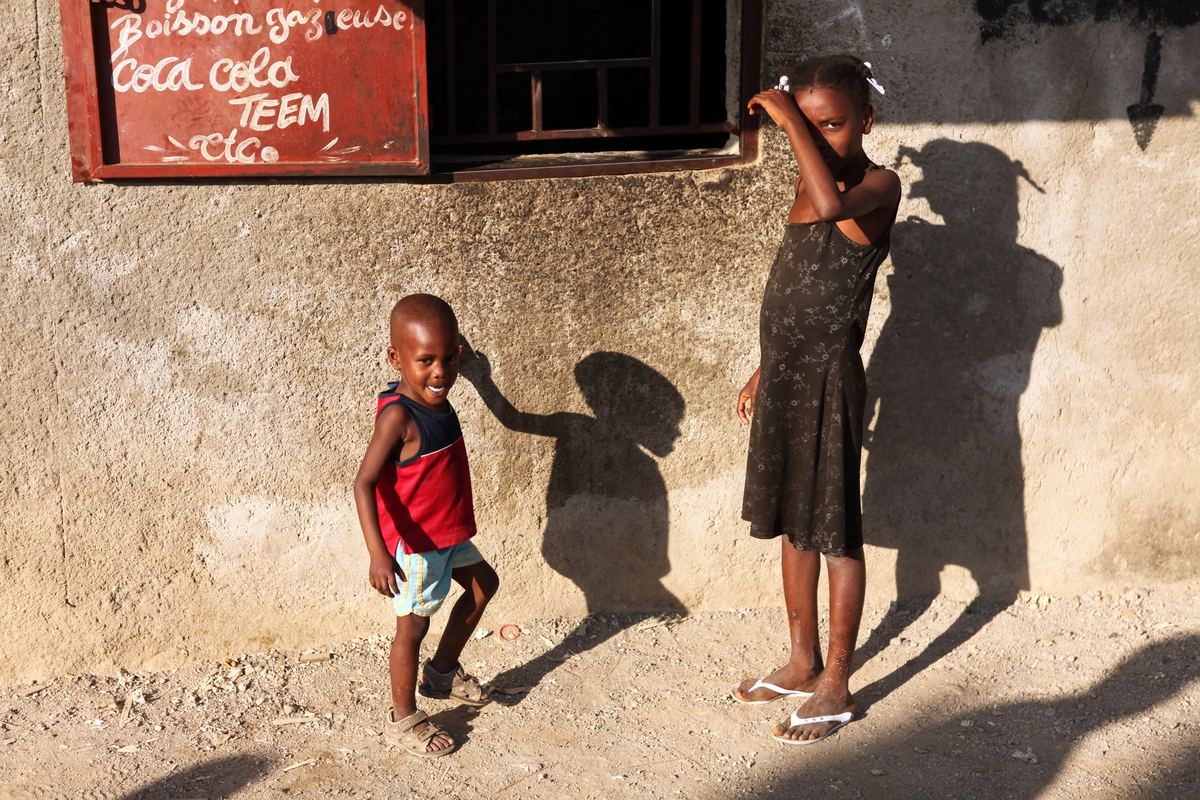Written by Jamie McMutrie, Co-Founder of Haitian Families First
I first travelled to Haiti in 2003, age 22, as a volunteer and found myself living in an orphanage and taking care of more than 40 children I was led to believe were “abandoned”. I was shocked to realise fairly soon that most of the children, in fact, had living parents. They were not orphans. Once a month the parents came to visit.
This realisation set me on a journey to learn what orphanages are truly about.
I now know more than 30,000 children are living in 700+ orphanages in Haiti. Of those, more than 80% have a living parent, while the remaining 20% have a close relative. I witnessed things that are painful to recount. High-level orphanage personnel met with desperate parents who had nowhere else to turn, and had come to the orphanage to seek help. Staff were trained to ask parents whether their wish was to relinquish their child into the orphanage, persuading them to say ‘yes’ using any means necessary.
A father seeking formula milk for his new-born, whose mother had died, was encouraged to give his baby up for adoption, and promised that there was a wealthy family overseas who could give the child more than he ever could. I watched as the father tearfully affixed his fingerprint to the relinquishment document he did not have the education to read or sign. I still talk to him regularly to tell him how his child is doing in America. He often tells me 'I just came to ask for milk.'
Orphanages employ 'baby-finders,' locals who canvass the neighbourhood for pregnant women. They build relationships, then inform the women of an orphanage nearby where parents can take their children for a better future. Mothers are enticed further by being paid a fee for their baby, which they are told is a stipend to help take care of their other children
Children living in some of the most well-funded orphanages are abused and neglected, often intentionally starved and kept from having nice beds, toys, or adequate food so that foreigners visiting on mission trips see the sad situation and are driven to donate more.
I have witnessed the destructive behaviour of visiting volunteers, almost always unintentional. Children in orphanages already have abandonment issues, having been left by their parents with no understanding of why. Foreigners relish the experience of cuddling needy children, not realizing a baby clinging to a stranger is abnormal behaviour. In fact, it is a sign of neglect and inability to form attachments. With volunteer teams coming and going regularly, these children are abandoned 20 or 30 times, or more, by adults they get to know before leaving the orphanage.
Families take their child to an orphanage for a variety of reasons. In 2010, my sister Ali, who joined me in Haiti in 2006, and I formed Haitian Families First, a non-profit organisation dedicated to keeping families together and helping them thrive. Whether they need assistance obtaining medical treatment, paying hospital bills, buying extra food, or paying for school tuition, mothers and fathers in Haiti will do whatever they can to keep their children. When an orphanage offers no solution to help the family unit, but only to help by taking the child permanently, parents feel as though they have no other option. Supporting parents by providing medical, nutritional, and educational support is keeping families together.
Many funders who supported the orphanage have turned away from us and our newly-defined mission. It is hard to understand why someone would decline to support a child in the family, instead choosing to fund an overcrowded, understaffed institution. I have to remember that I also, once, thought helping an orphanage was the right thing to do, and that it took many years, experiences, books, studies, sleepless nights, even threats on my life to learn the truth…orphanages are a business and volunteers are contributors. Directors are wealthy. Children are abused. And they have parents who want them.
You can read more about the work of Haitian Families First here.
Want to help #StopOrphanTrips #voluntourism?
1. Ask your university/college to sign the BVBC & LSE Volunteer Centre University pledgehttp://bettervolunteeringbettercare.org
2. Join our movement to support vulnerable families #WeAreLumoshttps://wearelumos.org/worldwide



